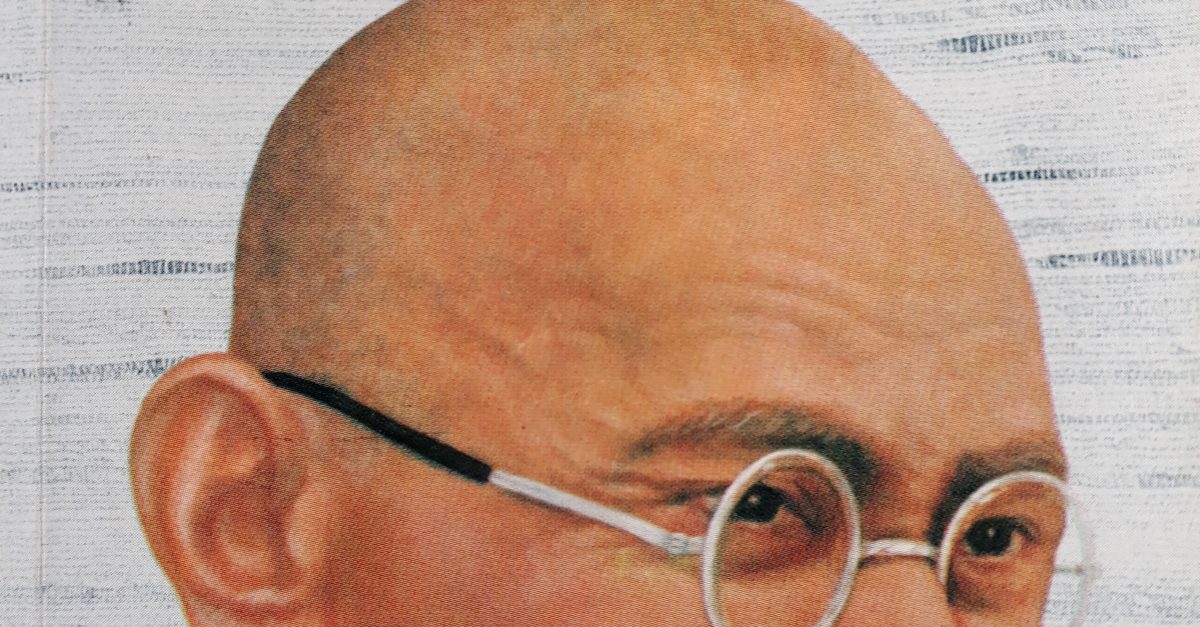My difficulties lay deeper. It was more than I could believe that Jesus was the only incarnate Son of God, and that only he who believed in him would have everlasting life. If God could have sons, all of us were His sons. If Jesus was like God, or God himself, then all men were like God and could be God Himself. My reason was not ready to believe literally that Jesus by his death and by his blood redeemed the sins of the world. Metaphorically there might be some truth in it.
Again according to Christianity only human beings had souls, and not other living beings, for whom death means complete extinction; while I held a contrary belief. I could accept Jesus as a martyr; an embodiment of sacrifice, a divine teacher, but not as the perfect man ever born. His death on the Cross was a great example to the world, but that there was anything mysterious or miraculous virtue in it my heart could not accept. The pious lives of Christians did not give me anything that the lives of men of other faiths had failed to give. I had seen in other lives just the same reformation that I had heard of among Christians. Philosophically there was nothing extraordinary in Christian principles. From the point of view of sacrifice, it seemed to me that the Hindus greatly surpassed the Christians. It was impossible for me to regard Christianity as a perfect religion or the greatest of all religions.
I shared this mental churning with my Christian friends whenever there was an opportunity, but their answers could not satisfy me.
Thus if I could not accept Christianity either as a perfect, or the greatest religion, neither was I then convinced of Hinduism being such. Hindu defects were pressingly visible to me. If untouchability could be a part of Hinduism, it could but be a rotten part or an excrescence. I could not understand the raison d’être of a multitude of sects and castes. What was the meaning of saying that the Vedas was the inspired Word of God? If they were inspired, why not also the Bible and the Koran?
As Christian friends were endeavouring to convert me, even so were Musalman friends. Abdulla Sheth had kept on inducing me to study Islam, and of course he had always something to say regarding its beauty.
I expressed my difficulties in a letter to Raychandbhai. I also corresponded to other religious authorities in India and received answers from them. Raychandbhai’s letter somewhat pacified me. He asked me to be patient and to study Hinduism more deeply. One of the sentences was to this effect: ‘On a dispassionate view of the question I am convinced that no other religion has the subtle and profound thought of Hinduism, its vision of the soul, or its charity.
I purchased Sale’s translation of the Koran and began reading it. I also obtained other books on Islam. I communicated with Christian friends in England…. Edward Maitland sent me The Perfect Way, The New Interpretation of the Bible. I liked both. They seemed to support Hinduism. Tolstoy’s The Kingdom of God Is Within You overwhelmed me. It left me an abiding impression on me. Before the independent thinking, profound morality, and the truthfulness of the book, all the books given me by Mr. Coates seemed to pale into insignificance.
(An Autobiography, M K Gandhi, Navajivan Publishing House, pp.126-27)







